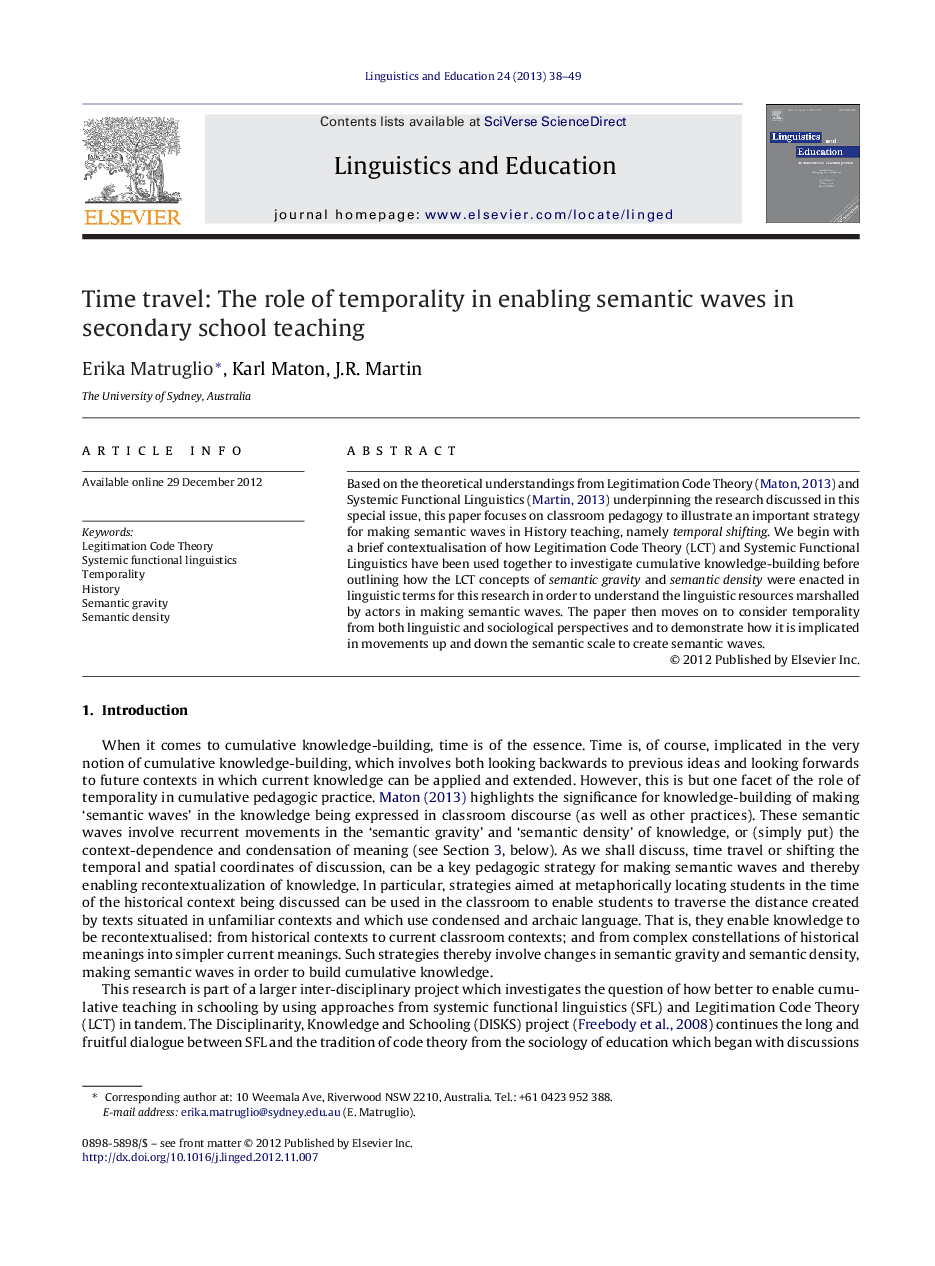| Article ID | Journal | Published Year | Pages | File Type |
|---|---|---|---|---|
| 366179 | Linguistics and Education | 2013 | 12 Pages |
Based on the theoretical understandings from Legitimation Code Theory (Maton, 2013) and Systemic Functional Linguistics (Martin, 2013) underpinning the research discussed in this special issue, this paper focuses on classroom pedagogy to illustrate an important strategy for making semantic waves in History teaching, namely temporal shifting. We begin with a brief contextualisation of how Legitimation Code Theory (LCT) and Systemic Functional Linguistics have been used together to investigate cumulative knowledge-building before outlining how the LCT concepts of semantic gravity and semantic density were enacted in linguistic terms for this research in order to understand the linguistic resources marshalled by actors in making semantic waves. The paper then moves on to consider temporality from both linguistic and sociological perspectives and to demonstrate how it is implicated in movements up and down the semantic scale to create semantic waves.
► Examine temporal shifting as a strategy for enabling shifts in the semantic range. ► Tense shifts enable delocation and relocation of knowledge. ► Temporal shifting is used to metaphorically locate students in historical events. ► We explore two modes of history for facilitating cumulative knowledge-building.
